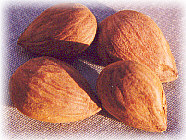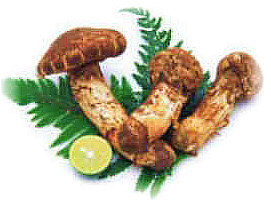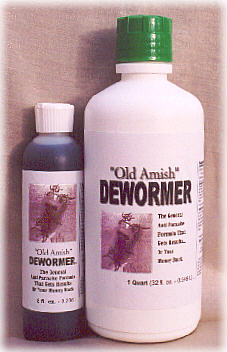
The Ashwin is a monthly webzine for
ΑΩ Labs' customers -- Feb., 2002 Edition
Formatted to 600 pixel width for ease of reading and hardcopy reproduction
from the browser.
Related Links:
 Ashwin Archives
Ashwin Archives
 Letters to the Editor - (Submissions)
Letters to the Editor - (Submissions)
|
|
 he importance
of controlling parasite activity is stressed in this month's
introduction of 'Old Amish' Dewormer.
Later this month we will provide a pictorial for practitioners
so that on examination of stool samples, a correct identification
of various species can be made at various stages of their
life cycle. he importance
of controlling parasite activity is stressed in this month's
introduction of 'Old Amish' Dewormer.
Later this month we will provide a pictorial for practitioners
so that on examination of stool samples, a correct identification
of various species can be made at various stages of their
life cycle.
 Among the most common
parasites found on using our Dewormer are the
intestinal fluke (Fasciolopsis Busii), round
worm (Trichinella spiralis, liver fluke
(Fasciola hepatica), and tapeworm
(Echinoccoccus granulosus). Among the most common
parasites found on using our Dewormer are the
intestinal fluke (Fasciolopsis Busii), round
worm (Trichinella spiralis, liver fluke
(Fasciola hepatica), and tapeworm
(Echinoccoccus granulosus).
 What shocks people is
that the vast majority of adult humans have one of
more major parasite infestations. What is even more
amazing is that with all the advances in modern medicine,
more emphasis has not be placed on vermifuges - and,
in fact, as our main Dewormer
page points out, we have lost knowledge about its
importance that was considered common knowledge as
recently in North America as the time of the early colonists. What shocks people is
that the vast majority of adult humans have one of
more major parasite infestations. What is even more
amazing is that with all the advances in modern medicine,
more emphasis has not be placed on vermifuges - and,
in fact, as our main Dewormer
page points out, we have lost knowledge about its
importance that was considered common knowledge as
recently in North America as the time of the early colonists.
 Even if you
decide not to purchase Dewormer -
at least read the articles. Even if you
decide not to purchase Dewormer -
at least read the articles.

Apricot!
 Well ... it had to happen sooner or later. Well ... it had to happen sooner or later.
 It wouldn't be right for altcancer.net
(our original domain) to not weigh in on the apricot seed / laetrile controversy. It wouldn't be right for altcancer.net
(our original domain) to not weigh in on the apricot seed / laetrile controversy.
 The short version is this:
although we are now offering apricot seeds
under our own label, we do not enthusiastically endorse the claims
found with such gusto elsewhere on the internet - and it isn't
just the legalities. There are empirical, clinical reasons for
taking a more conservative position and refraining from
raising people's hopes with strong curative overtures. The short version is this:
although we are now offering apricot seeds
under our own label, we do not enthusiastically endorse the claims
found with such gusto elsewhere on the internet - and it isn't
just the legalities. There are empirical, clinical reasons for
taking a more conservative position and refraining from
raising people's hopes with strong curative overtures.
 You'll read all about
it in our introduction to our
Blenheim Apricot Seeds. You'll read all about
it in our introduction to our
Blenheim Apricot Seeds.
"ET, Write Home!"
 In addition to our
general email page, our
testimonial submissions page,
our Ashwin Letter to the Editor page,
we now have a Chat Room and a
Bulletin
Board. We know it will take time, particularly for our
older customers and practitioners (who have so little
time with their busy practices now), to actually use
these new communication tools, but we encourage you
to do so. It will help everyone in our end of the
alternative health care market do a better job of
networking. In addition to our
general email page, our
testimonial submissions page,
our Ashwin Letter to the Editor page,
we now have a Chat Room and a
Bulletin
Board. We know it will take time, particularly for our
older customers and practitioners (who have so little
time with their busy practices now), to actually use
these new communication tools, but we encourage you
to do so. It will help everyone in our end of the
alternative health care market do a better job of
networking.
 So be sure to check out
these online facilities when you get a chance. So be sure to check out
these online facilities when you get a chance.
|
Note to our Readers:
This is the fifth edition of the The Ashwin
(pronounced "Ah-sh' win"), covering February, 2002.
Previous editions are archived.
If you have questions,
email us.
|

"Hail, 'Shroom
of the Gods!"

 ithin the last few
years there has been enormous interest in medicinal mushrooms - especially
those with useful amounts of cancer-fighting, long-chain polysaccharides.
Some of the clinical data coming out on mushroom extracts, particularly
from the Far East, has been extremely encouraging. ithin the last few
years there has been enormous interest in medicinal mushrooms - especially
those with useful amounts of cancer-fighting, long-chain polysaccharides.
Some of the clinical data coming out on mushroom extracts, particularly
from the Far East, has been extremely encouraging.
 Among those that have
received the most scientific, clinical, and journalistic
interest are reishi, shiitake, maitake, and cordyceps.
However, as it pertains to research in the area of
anti-cancer compounds, one particular mushroom stands
out: Agaricus Blazei Murill,
or "ABM" - a fungi so revered in its native Brazil, that
the indigenous people who use it refer to it as
"the mushroom of the Gods." Among those that have
received the most scientific, clinical, and journalistic
interest are reishi, shiitake, maitake, and cordyceps.
However, as it pertains to research in the area of
anti-cancer compounds, one particular mushroom stands
out: Agaricus Blazei Murill,
or "ABM" - a fungi so revered in its native Brazil, that
the indigenous people who use it refer to it as
"the mushroom of the Gods."
 As is typical of
this field, hosts of web sites have sprung up - each
with an extract supposedly more highly refined, with
higher "standardized triterpenes" or other isolated
chemical group - most attempting to justify
pharmaceutical level prices for what are
ostensibly simple extracts. As is typical of
this field, hosts of web sites have sprung up - each
with an extract supposedly more highly refined, with
higher "standardized triterpenes" or other isolated
chemical group - most attempting to justify
pharmaceutical level prices for what are
ostensibly simple extracts.
 For certain cases,
based on a review of the latest scientific literature,
we would actually refer a patient to another vendor
that offered good mushroom extracts - until we discovered
the variances in quality and price. (One popular
supplier offers a 250 Cap bottle for $124.00).
Mushroom extracts aren't cheap, but some of the
prices out there are outrageous. For certain cases,
based on a review of the latest scientific literature,
we would actually refer a patient to another vendor
that offered good mushroom extracts - until we discovered
the variances in quality and price. (One popular
supplier offers a 250 Cap bottle for $124.00).
Mushroom extracts aren't cheap, but some of the
prices out there are outrageous.
 For that reason
we are introducing our own product
this month. Please note that some abstracts from
the literature have been put on our
agaricus page. Be advised
that these are for general information only. We
are not claiming that there is anything conclusive
in what we currently know about ABM, or any of its
cousins in the Basidiomycota class. Clinical
results - including comments from our own customers -
is extremely encouraging, however. For that reason
we are introducing our own product
this month. Please note that some abstracts from
the literature have been put on our
agaricus page. Be advised
that these are for general information only. We
are not claiming that there is anything conclusive
in what we currently know about ABM, or any of its
cousins in the Basidiomycota class. Clinical
results - including comments from our own customers -
is extremely encouraging, however.
 Used strictly
as a nutraceutical, those who would do well to
look into adding ABM to whatever other supplements
they take would include those suffering from
blood cancers (lymphoma, leukemia, or Hodgkins),
as well as uteran, ovarian, and cervical cancer
cases. Other classes also hold good prospects,
but, again, the literature is not yet
conclusive. Used strictly
as a nutraceutical, those who would do well to
look into adding ABM to whatever other supplements
they take would include those suffering from
blood cancers (lymphoma, leukemia, or Hodgkins),
as well as uteran, ovarian, and cervical cancer
cases. Other classes also hold good prospects,
but, again, the literature is not yet
conclusive.
Home Page |
Order
© 2001-2002 Alpha Omega Labs • Nassau, Bahamas • All
rights reserved. This page completed 02/03/2002.
|




